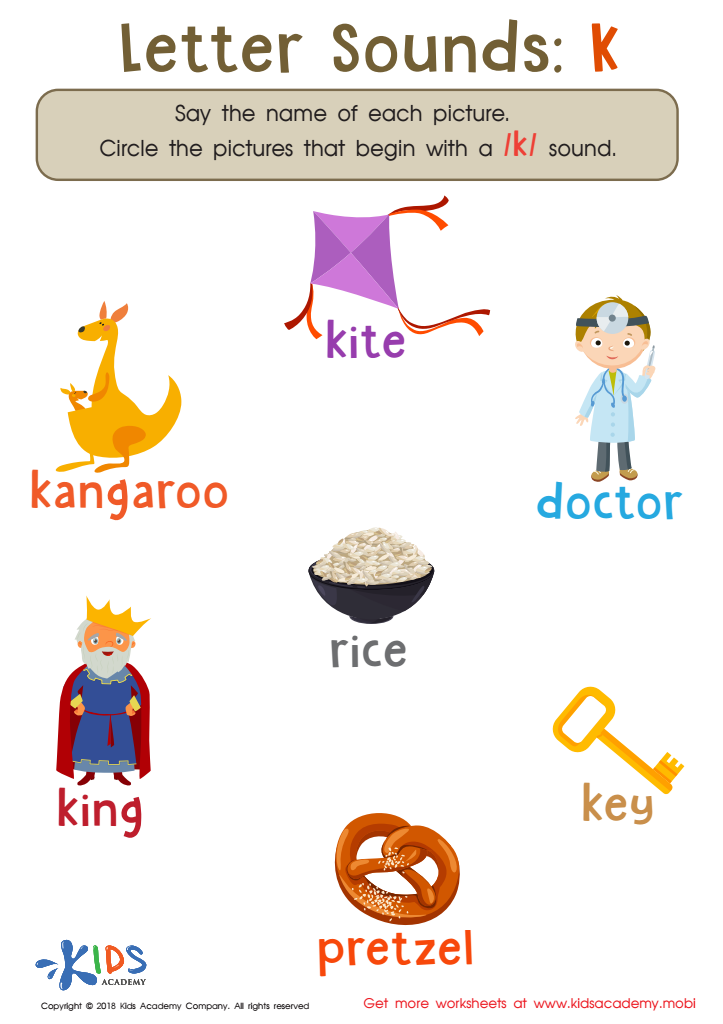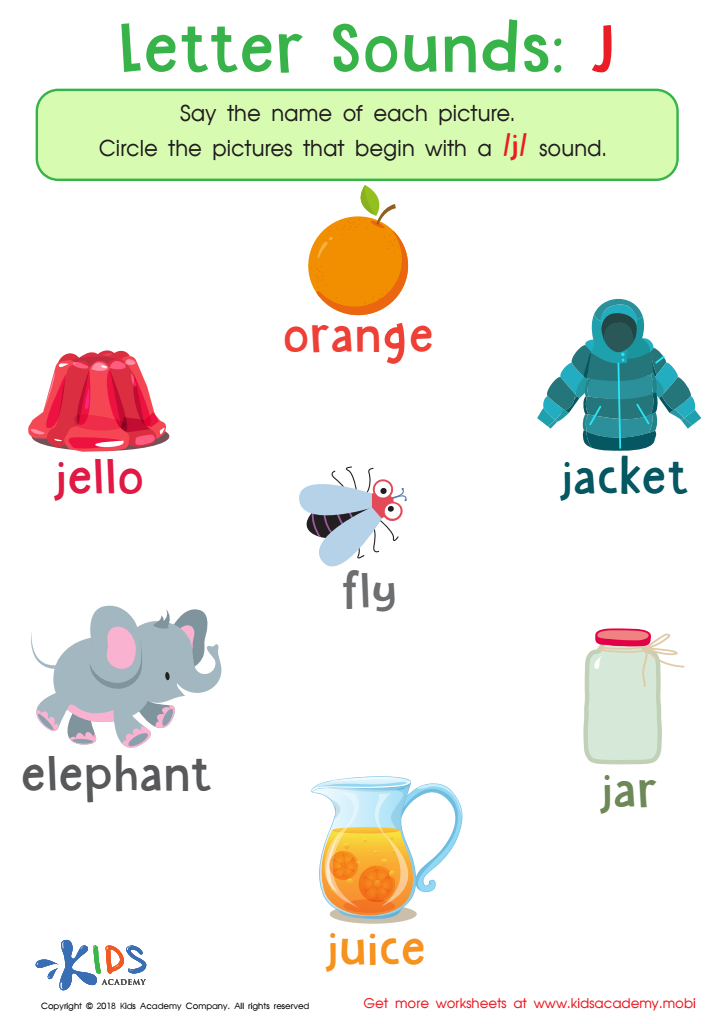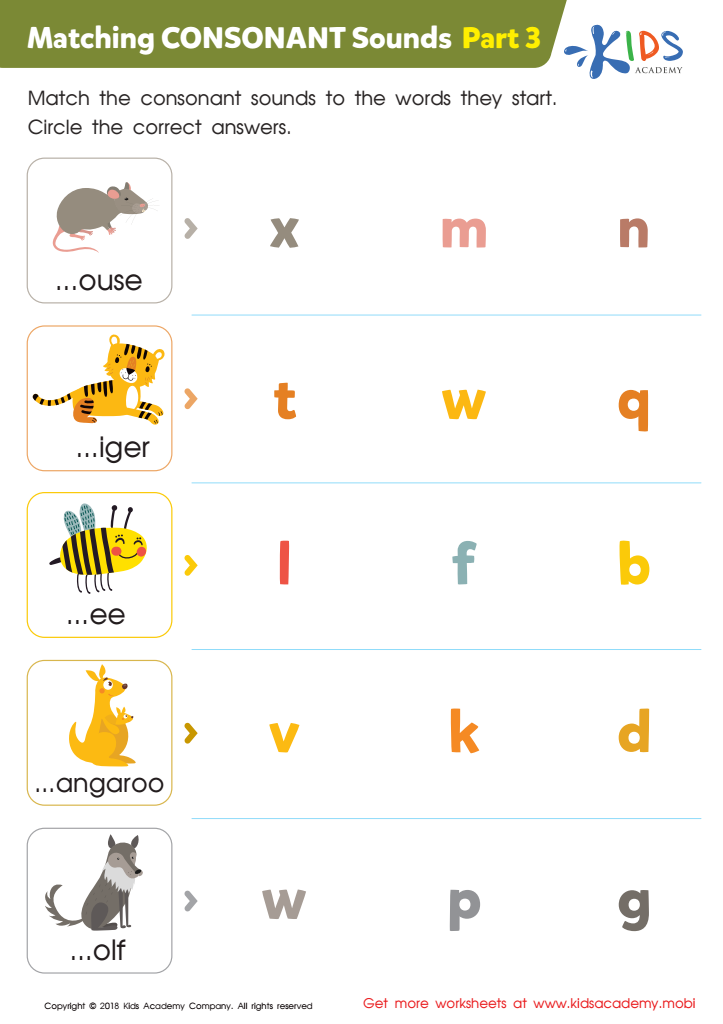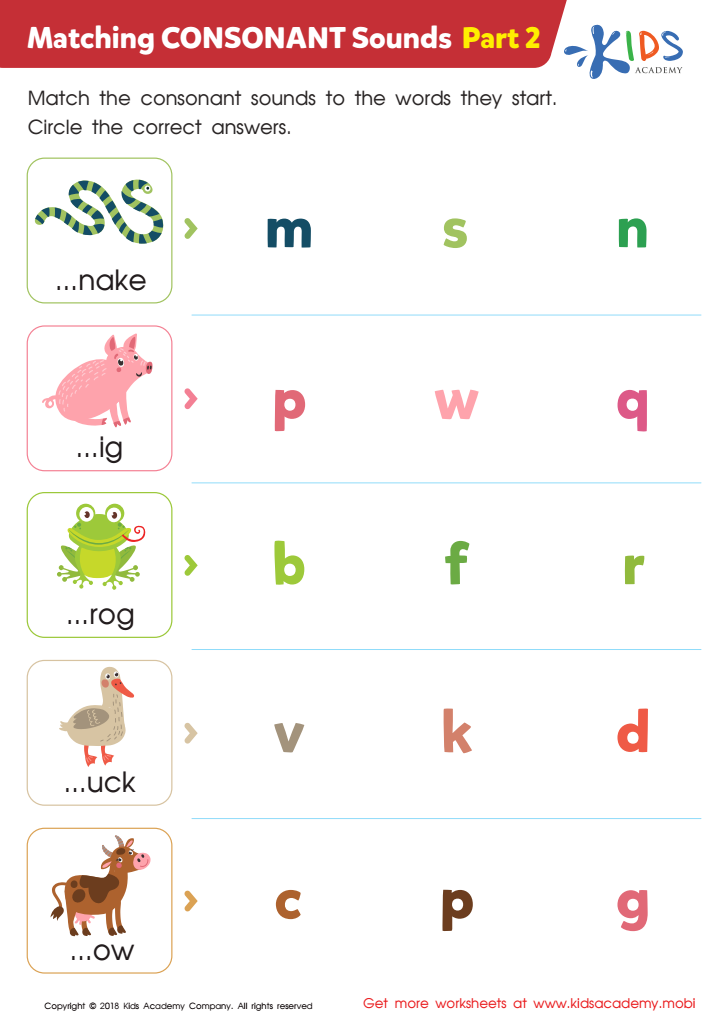Phonics recognition Normal Phonics Worksheets for Ages 3-5
5 filtered results
-
From - To
Unlock the magic of reading with our Phonics Recognition Normal Phonics Worksheets, specially designed for ages 3-5. These vibrant, engaging worksheets help preschoolers develop essential phonics skills by recognizing letter sounds, blending syllables, and identifying simple words. Perfect for early learners, each activity combines fun graphics with interactive exercises to make learning enjoyable and effective. Our worksheets support early reading success, laying a robust foundation for confident and fluent readers. Ideal for homeschoolers, teachers, and parents looking to enrich their child's literacy journey, these phonics worksheets turn learning into an exciting adventure!


Letter K Sounds Worksheet


Letter Sounds: J Printable Worksheet


Matching Consonant Sounds: Part 3 Worksheet


Matching Consonant Sounds: Part 2 Worksheet


Phonics and Word Recognition: Assessment 1 ELA Worksheet
Phonics recognition is fundamental for early literacy development, making it a crucial focus for parents and teachers of children aged 3-5. At this formative stage, children's brains are exceptionally receptive to language learning, and phonics, which combines the relationship between sounds and their corresponding letters, forms the backbone of efficient reading and writing skills.
Understanding phonics equips young children with the ability to decode unfamiliar words by sounding them out, a skill that enhances reading fluency and comprehension. Research shows that early proficiency in phonics correlates with later reading achievements, fostering better educational outcomes. Additionally, phonics instruction supports spelling and vocabulary growth by reinforcing the principles behind word construction.
For parents and teachers, incorporating phonics in regular play and learning activities encourages a positive reading experience. Tools like nursery rhymes, and phonics games integrate seamlessly into play, making learning enjoyable and engaging. Attending to phonics recognition at this stage can prevent future learning difficulties, boosting children's confidence and fostering a lifelong love for reading.
Involving phonics in early education ensures that children build a solid foundation in literacy, one of the most critical skills for academic success and overall cognitive development. By prioritizing phonics, educators and parents empower children with essential tools for effective communication and learning.
 Assign to My Students
Assign to My Students















